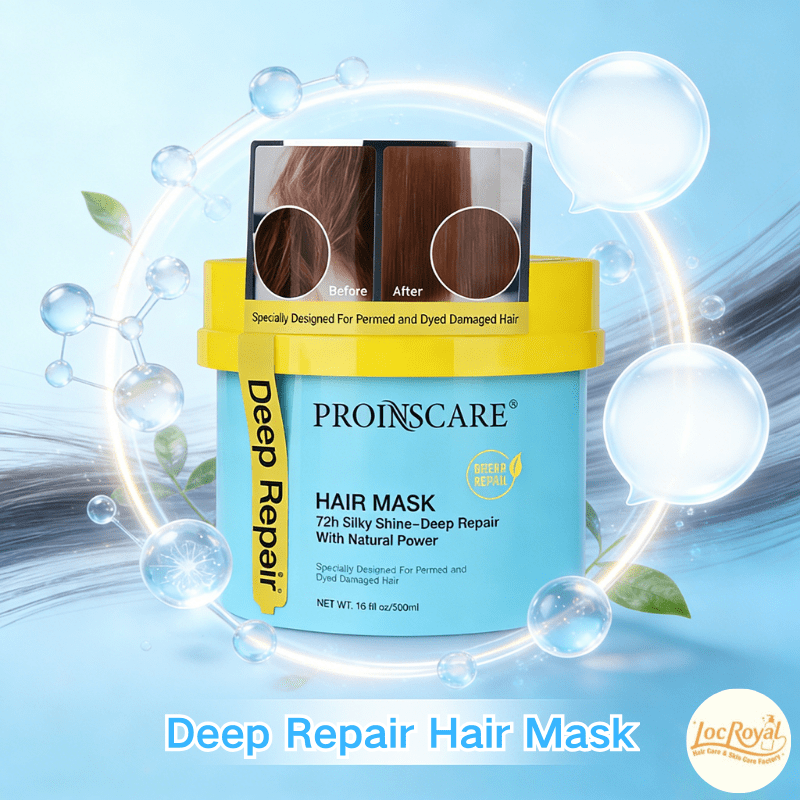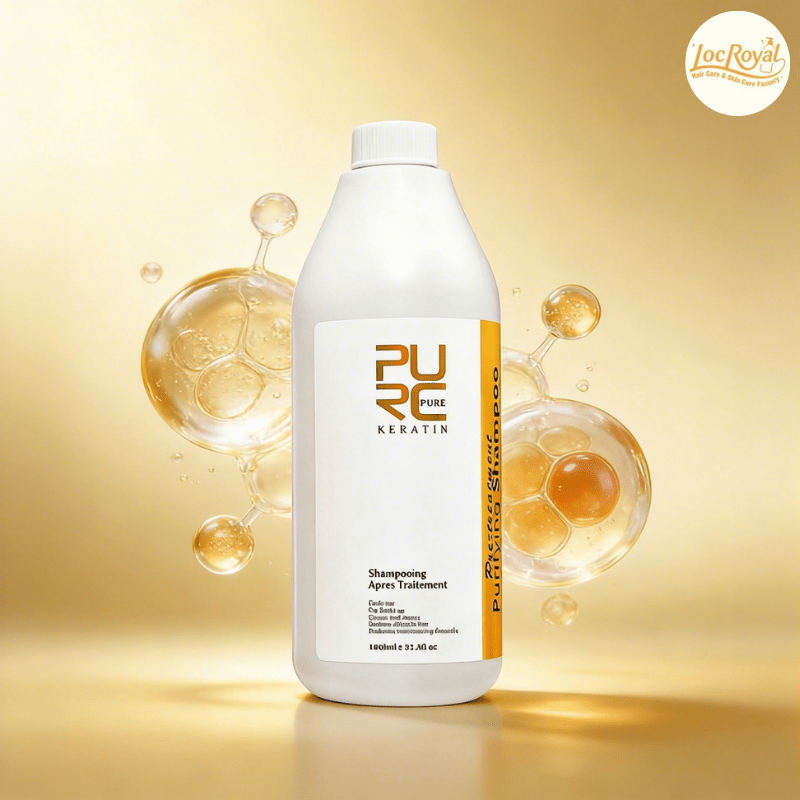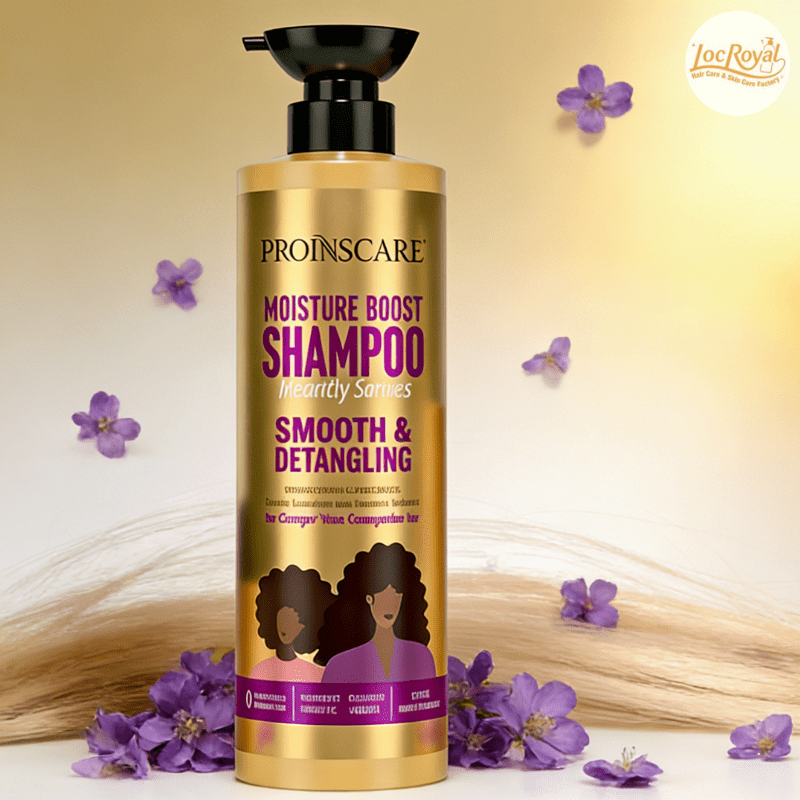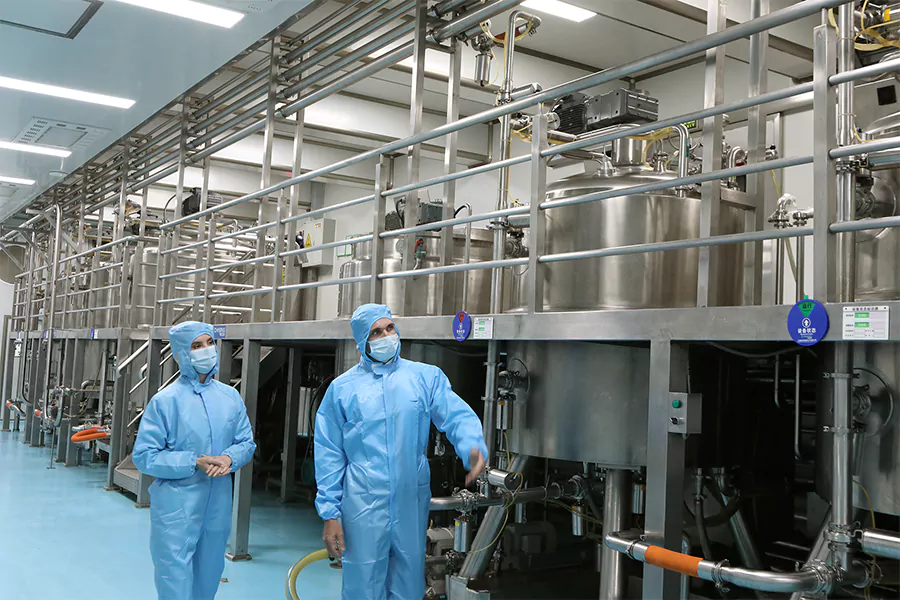Today, consumers prefer products that not only benefit their hair but also the environment. But how can brands meet this demand while offering high-quality products on the market?
This is where Original Equipment Manufacturers (OEMs) come in as they take over and offer such solutions. Major benefits include contributing to brand development and developing such sustainable hair care products as environmentally friendly formulations, eco-friendly packaging, and low-impact processes. In this article, we shall discuss the significance of sustainability in the hair care industry and how OEMs can assist brands in embracing it.
The Growing Demand for Sustainable Hair Care
Today, customers have shifted their focus to the quality of their hair products, starting from the content of the product to the packaging and the process of manufacture. They expect that brand transparency discloses what is contained in them and their impact on the environment.
1. The Market is Growing
Natural and organic personal care is deemed a promising market, with an approximate annual growth rate of more than 8% through 2027, reaching a market size of $29.82 billion.

The market for natural hair care products is expand faster than the normal hair care product market; the growth rate per year is over 10% for North American & European continent.
There is a 10% increase every year on consumers willing to pay more for the formulation and packaging that is environmentally conscious.
2. What Consumers Want in Green Hair Care
The other one is clear ingredient lists, which suggests that more than three quarters of adults want to know what is in their shampoo and conditioner.
The sentiment that a product is cruelty-free and free from animal products, especially through the test, is increasing.
Sustainable Packaging – The majority of millennials and Generation Z prefer that shampoo bottles be recyclable or biodegradable.
It became clear that the concept of sustainable beauty is not an option but the future of the beauty industry. These are some of the measures that should be implemented by brands that do not wish to be overtaken by those that are already implementing the strategies highlighted above. Yet, what do they have to do so as not to be left behind?
Why Brands Should Care About Sustainable Hair Care
Surely, it is more than just the earth that will benefit from the improvements and ameliorations that we undertake; business will also benefit immensely from the changes that are being implemented.
1. Governments Are Setting New Rules
Single-use plastics are being increasingly prohibited in many countries, and new standards for cosmetics are being established. Businesses that you fail to abide by the laws may face penalties in the form of fines or being locked out from certain regions.
2. Eco-Friendly Brands Win More Customers
Clients trust those companies that have a consideration for the nature they live in. People who engage in sustainable hair care practices enjoy good sales and customer loyalty markets.
3. Sustainability Can Reduce Costs
Reducing the expenses for some production includes the use of biodegradable bottles, reusable containers, and green formulas. More importantly, the reduction of sales promotion costs brings direct equivalent savings on the cost of production for the brands.
Therefore, it can be noted that sustainability is not only the right thing to do but also the wise thing to do for any business ventures. So, how can the established brands create their products that are sustainable?
How OEMs Support Brands’ Effort Towards Environmental Management
Many OEMs offer solutions to other brands that want to bring environmentally friendly hair products onto the market. They assist in formulas, packaging, and production, and this can be achieved within a limited budget.
1. Creating Green Hair Care Formulas
The OEMs can also assist the brands in developing products that eliminate the use of hazardous substances while also being environmentally friendly. Here’s how:
- Biodegradable Ingredients – Using plant-based surfactants instead of harsh chemicals.
- Organic & Natural Ingredients – Offering USDA Organic and Ecocert-certified formulas.
- Vegan & Cruelty-Free Products – The absence of animal products in the product and no products tested on animals.
2. Offering Sustainable Packaging Options
One of the problems that has been witnessed in the beauty industry is packaging waste. Below are the areas through which OEMs assist the brands to manage their emissions:
- 100% Recyclable Plastics – Like PCR PET & PCR HDPE.
- Biodegradable Shampoo Bottles, bottles that are made of PLA and PHA, are biodegradable in nature.
- Refillable Systems – Less plastic waste, more sustainability.
The use of green beauty packaging helps the selected brands appeal to the conscious consumers but helps reduce on the use of the limited resources as well.
What Makes a Formula Truly Sustainable?
Sustainability is the practice of not just ceasing the use of hazardous substances and products. Thus, it is about product recipes that can help to create goods that are safe for people and the environment, effective, a ppropriate and useful.

1. Using Natural, Plant-Based Ingredients
- Sulfate-Free Shampoos – Gentler on hair and better for the environment.
- Silicone-Free Conditioners – The product does not have synthetic silicones and instead contains plant-based oils.
- Plant-Based Preservatives – No harsh chemicals, only safe, natural alternatives.
2. Balancing Performance and Sustainability
A problem in guaranteed hair care is to empower hair products that can function like conventional hair products. This generally helps and sustains growth through the use of green technology in improving:
- Cleansing Power – Plant-based surfactants that clean hair effectively.
- Foaming Action – Natural foam boosters that make you feel lavish.
- Shine and Condition – Vegetable oils and proteins are used instead of silicone.
These customized hair care products become beneficial for brands because they fill shelves with products that are both ecological and effective.
Sustainable Packaging: What Are the Best Options?
The main and one of the most important changes that the beauty brands can make is to shift to sustainable packaging.

1. Choosing the Right Materials
- Recyclable Plastic – These include PCR PET and PCR HDPE plastics that are made from recycled plastic.
- Eco-friendly Beauty Packaging – Recyclable, renewable, and compostable products that do not harm the environment.
- Zero-Plastic Alternatives – Such as paper bottles and solid shampoo bars.
2. Living Sustainably and Minimising Carbon Footprint
- Lightweight Bottles – Using less plastic in each product.
- Refillable & Reusable Designs – Reducing waste and encouraging reuse.
- Compostable Labels & Ink – Making packing easier to recycle.
Another preview innovation is compostable labels and ink; it makes the packaging simpler to recycle.
Therefore, when a brand is in search of the right hair care manufacturer, the services offered should be of good quality and still be affordable for the brands to make profits.
The Green Supply Chain: How to Lower Carbon Footprints
So sustainability goes beyond the products; it is also about how the products are made and how they are brought to the market.
- Renewable energy: Solar-powered factories to help reduce energy consumption.
- Water-Saving Systems – Avoid the use of water and instead use the water in several cycles.
- Reducing Carbon Footprint by selecting environmentally friendly shipping.
An environmentally friendly hair care product manufactured by a company with low-carbon processes is useful in ensuring the brands of the company are not left behind by their green counterparts while at the same time protecting the environment.

How to Choose the Right OEM Partner
Not all OEMs are the same. It means that brands require a partner that would appreciate sustainability as long term strategy.
- Environmental Certifications – Look for ISO 14001, Ecocert, or USDA Organic approval.
- Sustainable Supply Chain – A network of eco-friendly raw material suppliers.
- Innovative Packaging Solutions – The proposition of desiring to offer environment-friendly packaging and easily refillable ones.
- Green Manufacturing Practices – Using low-energy and low-waste production techniques.
That is why it is important for brands to choose the right hair care product manufacturer who will help them in realizing their vision on sustainability.
Conclusion
The beauty industry is changing. The ideas of sustainable hair care have now become not just a luxurious idea but rather more of a reality. People want to buy from companies that are receptive to the environment and have demonstrated it.
Brands can thus partner with OEMs that deliver environment-friendly versions of their products and packages that fit into the green beauty market.
Ladies and gentlemen, looking forward to setting up a hair care line that is going to be marketable and sustainable? Partner with LocRoyal Haircare, a leader in private-label hair care products. Explore our services here.
LocRoyal is a professional hair care manufacturer, we have our own brand ” PURC ” and “PROINSCARE”, can offer private label hair care products customization service.
FAQs
1. What is sustainable hair care?
Eco-friendly hair care products use environmentally friendly ingredients in the products they produce, recycle, and have minimal impacts on the environment.
2. Why are consumers now looking for sustainable hair care products?
Congum consumers expect their products to be safe, efficacious and also have a degree of environmental tolerance. Many prefer sulfate-free shampoos, cruelty-free formulas, and recyclable packaging.
3. How can OEMs support brands in creating eco-friendly hair care products?
Favourable OEMs which offer products such as hair care ones, made with natural materials, in eco-friendly packages and produced using minimum carbon footprint assist brands to fulfil their green targets.
4. What are some common packages that are environmentally friendly for hair care products?
Some forms of sustainable packaging that brands can employ include 100% recycled PET and HDPE bottles, biodegradable shampoo bottles made from PLA and PHA, those that can be refilled, and biodegradable paper based packaging.
5. What are some differences between plant-based formulas and traditional hair care products?
It is also important to note that contemporary vegan and organic products are as effective as traditional shampoos and other hair care products while not damaging hair with dangerous substances.
6. What certification should brands look for in sustainable hair care products??
Companies may have several certifications, including USDA Organic, Ecocert, and COSMOS for organic, Leaping Bunny for cruelty-free, and ISO 14001 for environmental management.
7. How does a hair care product manufacturer aid a brand to go green?
There are policy statements for low carbon production, recycled materials, and water-efficient processing towards sustainable beauty.
8. Do green hair care products cost more to manufacture?
Despite needing more money to offer eco-friendly materials, cost-saving measures can be adopted in sustainable production and may hence be considered fractions.
9. In what ways do private-label hair care products contribute to sustainability?
They include options for developing environmentally friendly products by using degradable packaging material, thus cutting down on manufacturing expenses.
10. Where can brands find an OEM partner for sustainable hair care?
LocRoyal Haircare is a haircare manufacturer that can supply brands with custom, sustainable, readily available hair products. Learn more here.






